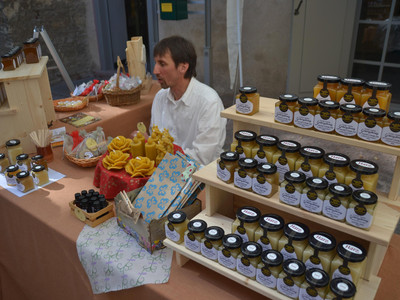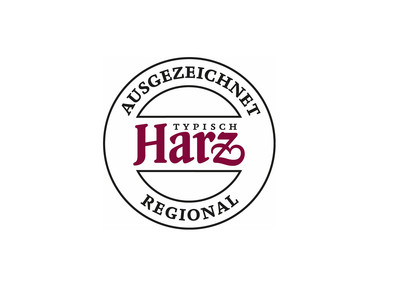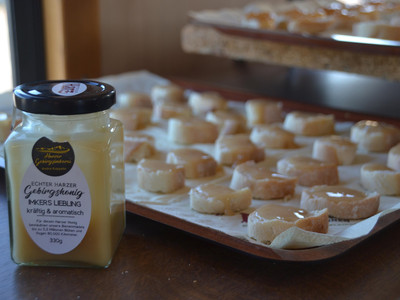The taste test of these varieties shows that not all honey is the same.
The main thing is to pollinate countless flowers and thus ensure a colorful splendor and a rich harvest of fruits and seeds. In the wild home of the lynx, eagle owl and wildcat - the mountains and valleys between Michaelstein Monastery, the Bode Valley and the Rappbode Dam - the bees still find a richly laid table of flowers. In fact, the honey is more of a 'by-product' - but a very tasty one. Some of Mr. Koppelin's colonies are located directly in Michaelstein Monastery and collect nectar from medicinal and aromatic plants. This gives the "Michaelsteiner Klosterhonig" a special aroma.
The bees have to travel at least 40,000 km to collect the nectar for a 500 gram jar of Harz mountain honey. They also pollinate around 6.5 million flowers.
The harsh Harz climate means that the amount of nectar collected in the hive is often less than in the flatlands. But it is worth it. The taste of "genuine Harz mountain honey" is unique. There is hardly any agriculture with nectar-giving plants in the Harz Mountains, so the palate experiences unknown culinary delights. Honey, flower pollen and propolis have a very broad range of health-promoting effects on a purely natural basis. You can find detailed information on the extraction and use of all products at www.koppelin.de.
The following products have been awarded the "Typically Harz" regional brand:
- Real Harz mountain honey
- Michaelstein monastery honey
- Flower pollen
- (Raw) propolis - also known as bee pith resin
- Beeswax
- Beeswax candles


